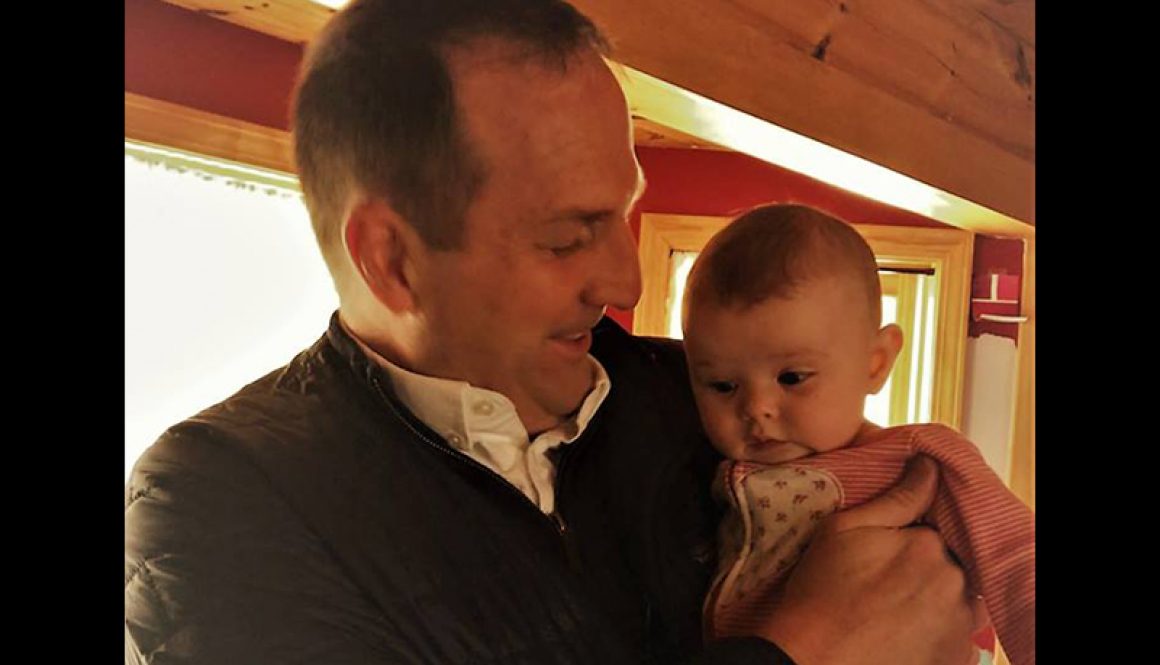Psychology Baby 101
Infant/Child Development
This is me and my grand-daughter Mira.
Mira is beautiful as you can clearly see.
But that’s not why I posted this.
I want to discuss infant and child development. Specifically, memory and it’s relationship to strong emotions such as baseline fear response and love.
Babies generally can not “remember” things. They can track objects but have limited storage and recall of these things.
Limited Recall
Obviously, the people closet to them get priority in terms of storage and recall. Mom and dad for example. Object permanence starts around 4-7 months. This refers to the ability to remember something was there and it will come back even if it disappears.
However, they can’t remember much. Most of life is in the moment with no frame of reference to the past.
Fear, however, will trigger a much stronger memory.
Encoding
Encoding is the process of breaking the information down into a form we understand so that it can be more easily stored (and we later “decode” the information to recall it).
The process of getting into through the processing system into memory and later retrieval is natural and hard-wired. It is automatic. Again, we call this encoding.
If a baby had a jarring experience it can “encode” and remain in place.
This is for obvious reasons, human beings are wired to notice the dangers.
Hard-wired
Think about the implications of this process in trauma work. Our strongest memories during infancy are associated with LOVE and FEAR.
Love keeps us close to those who are “safe”.
Fear keeps us alive by avoiding perceived danger.
Hard-wired. From the start with long lasting impact.
The MIRA Event
About 4 weeks ago Mira was chillin’ and doing her thing. Observing the world.
I was interacting with her in normal adult to infant fashion.
All these other kids were around (my kids). Lots of activity. Lots of noise.
At some point, I get loud with one of these other rug-rats.
Fight or Flight
I’m not even sure what exactly happened, but I startled Mira and she got all quiver-lipped and sad.
She starts crying. She was all jammed up.
Interestingly, since that experience her “fight or flight” instinct will kick in when I’m with her.
You can see it escalate.
I pick her up. She starts to breath faster.
She starts to look for her mom or dad.
Interestingly again, if they are in the room she can use them for comfort and self-soothe (this is a very good sign and bodes well for her future success).
Crisis Escalation
If her parents are not in the room she continues on the “crisis escalation cycle”.
Today we were able to successfully implement an extinction protocol to get her over this.
Raise exposure with parents in the room.
Extinction Protocol
Level 1: Exposure in mom’s arms;
Level 2: Brief hold facing away looking at mom;
Level 3: Brief hold facing me and quick return to mom.
Level 4 : Casual hold for extended period of time. (see image above)
Intervention
Subjective units of distress steadily decreased and I am proud to say that I think we have a successful intervention.
Tonight we will attempt the protocol with parents out of the room.
Editors Note: I was born in 1958 to an unwed mum, and back then in Scotland, society did not look upon single mothers with much regard. Single mothers were instantly stigmatised and shamed.
This eventually led my mother to place me into a unwanted children’s home.
That happened in 1961 an to this very day I recall vividly the sound of her heels hitting the tile floor as she walked away from me leaving me with strangers.
I cried out – Mummy, Mummy, I am sorry Mummy.
It was only a few years ago in 2015 that I discovered and started to gather information on the damage done.
Then I could take action to heal the “trauma of abandonment”.
Until that time I had suffered repeated distress over and over and over. My personal recovery from substance use disorder was never successful.
All of 31 long and tedious years of struggling I was trying to fix the “symptom” instead of the original “root cause” of my difficulties..
Much of the foundational research in this area has been referred to as –Adverse Childhood Experiences,(ACEs).
ACEs can be prevented. – Thanks, Chris Freeman | SoberWorx

